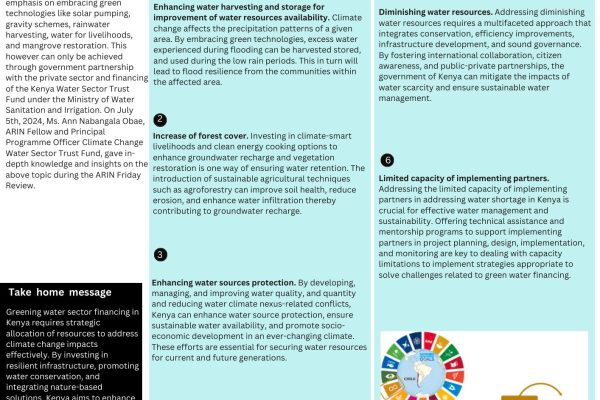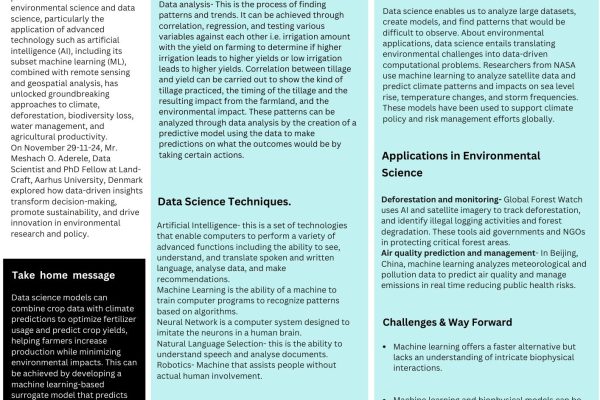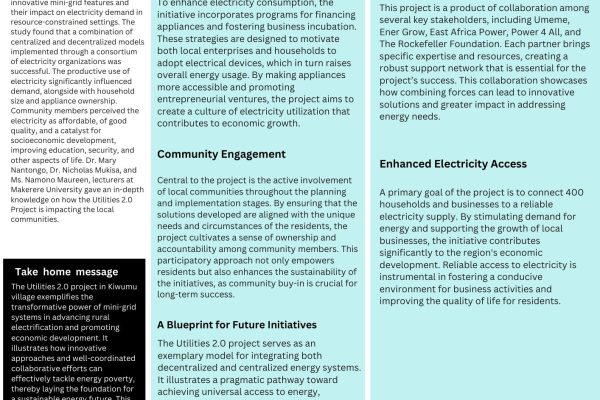Introduction
Africa faces significant challenges in achieving universal energy access and meeting its climate change goals due to underinvestment in the energy sector. The continent attracts only 3% of global energy investment, far below what is needed to reach sustainable development targets and universal energy access by 2030. To achieve these objectives, investment must increase to over USD 200 billion annually. The high capital costs, 2-3 times higher than those in advanced economies, further complicate the situation, hindering the development of clean energy infrastructure across the continent. Key challenges include under-investment, high capital cost, limited private sector involvement, and policy gaps. Blended finance, which combines concessional financing from public institutions with private capital, is essential to bridge the investment gap in the energy sector. This review explored the success of this model in reducing risk for private investors and making energy projects more financially attractive. Mr. Peter Onyilo, of Axiomata Technologies Limited, Nigeria elaborated on the topic on October 4, 2024.
Key Messages.
High Upfront Costs
One of the significant challenges facing renewable energy projects in Africa is the considerable upfront investment required. For many African nations with constrained financial resources, these initial costs can be prohibitive. Additionally, the continent’s financial markets are often underdeveloped, making it difficult for investors to secure the necessary capital for clean energy initiatives. Without a robust financial framework, attracting investment becomes a complex endeavor, hindering the growth of renewable energy sectors.
Perceived Risks
Investors frequently view renewable energy ventures in Africa as high-risk propositions. This perception stems from various factors, including political instability, regulatory inconsistencies, and fluctuations in currency value. Political unrest can result in abrupt governmental changes and shifts in policy, creating an unpredictable environment for potential investors. Furthermore, conflicts and civil disturbances can disrupt project timelines, elevate security expenses, and threaten the safety of personnel and infrastructure, further exacerbating investor hesitation.
Policy Frameworks
In many regions, existing policy frameworks still favor fossil fuels over renewable energy sources. This bias not only creates an unfavorable environment for clean energy investments but also complicates the processes associated with permitting and licensing. The bureaucratic nature of these processes can be lengthy and cumbersome, deterring potential investors who may lack the patience or resources for protracted negotiations and approvals.
Abundant Natural Resources
Despite the challenges, Africa boasts a remarkable wealth of renewable energy resources. The continent’s high levels of solar irradiance, particularly in areas such as the Sahara Desert, position it as an ideal location for large-scale solar energy projects. Coupled with ample wind resources, Africa has the potential to harness these natural advantages to significantly increase its renewable energy capacity. This abundant potential makes the continent a promising player in the global renewable energy landscape.
Technological Advancements
Technological innovations, particularly in energy storage and smart grid systems, can play a pivotal role in addressing some of Africa’s infrastructure challenges. By adopting these advanced technologies, nations can enhance the reliability of their energy grids, improve energy efficiency, and facilitate a smoother transition toward sustainable energy solutions. Implementing these innovations could also enable a more flexible energy infrastructure that meets various demands of urban and rural populations.
International Collaboration
Forging partnerships with international organizations and development partners can provide a vital lifeline for renewable energy projects in Africa. Institutions like the World Bank, the African Development Bank (AfDB), and the United Nations offer financial support and technical expertise, which can significantly aid in the development of renewable energy initiatives. Through grants and concessional loans, these organizations can help to mitigate the substantial initial costs associated with such projects, making them more viable and attractive to investors.
Conclusion
To foster smart energy financing in Africa, a multifaceted approach is necessary, encompassing innovative policy-making, international collaboration, and substantial infrastructure investment. By addressing these challenges and capitalizing on available opportunities, Africa can not only bridge its energy access gap but also contribute meaningfully to global climate change mitigation efforts. The continent has the potential to emerge as a leader in sustainable energy development, benefiting both its citizens and the global community.




